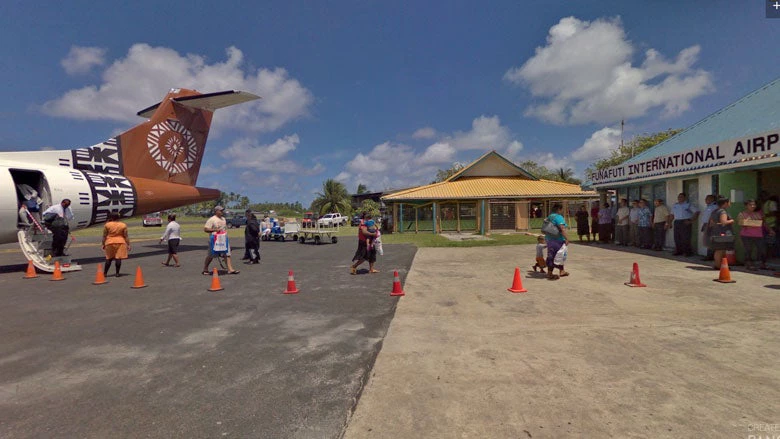
It’s not often that Bank staff members help make history – but we did by assisting Tuvalu in becoming the 192nd member of the International Civil Aviation Organization (ICAO).
Created in 1944, the ICAO is a UN organization that sets standards and regulations for civil aviation. ICAO membership is important for Tuvalu, as it is a key prerequisite for the development of international air services.
The World Bank facilitated the membership process by providing funding through the Tuvalu Aviation Investment Project for the Minister and the Secretary of Transport and Communications to attend the last ICAO Assembly as observers. At this key aviation industry event that occurs every three years, the World Bank facilitated meetings with senior officials, which initiated dialogue about the joining process, the benefits of membership and next steps. The project will also cover the first year of membership fees through recently approved third round of additional financing.
Besides securing access to technical support that will help it comply with requisite safety and security standards at Funafuti airport, membership will give Tuvalu a voice in international aviation dialogues, and an opportunity for participation in conferences and exchanges on global matters, such as climate change.

Though Tuvalu only sees three flights per week, when it comes to safety size does not matter, and adherence to safety and security standards as stipulated in the more than 12,000 global Standards and Recommended Practices (SARP) of ICAO is critical.
As an ICAO member, the country will now benefit from ICAO’s global guidance and support on development of its aviation policies, capacity-building, and infrastructure development planning. Most critically, Tuvalu will also benefit from ICAO’s aviation safety and security auditing programs, which assess the effectiveness of safety and security oversight and provide support to ensure that any deficiencies are addressed. This will directly support Tuvalu to reach compliance with SARPs critical for aviation safety and security.
The island’s airport, Funafuti International Airport (FUN), covers around one third of the main island and plays a key role in connecting the nation’s population of 10,000 to the Pacific Island region. Unlike most other Pacific Island countries, which predominantly rely on their airports for tourism, FUN is Tuvalu’s strategic lifeline. Given the shortage of work opportunities in Tuvalu, there is a significant migrant work culture reliant on air travel to reach job destinations. Travel for education, health and family connections are also important.
As one of the smallest states on earth, Tuvalu has made an important step in joining the international community in one of its most important sectors for connectivity and integration – air transportation. For Tuvalu, joining ICAO is certainly a case of "one small step for international air transport, one giant leap for Tuvalu".



Join the Conversation